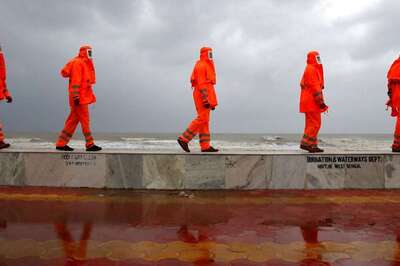
views
Following the COVID-19 pandemic, there has been a significant shift in the job market as a whole. Remote work once considered a perk for a select few, has become the new normal for millions of employees around the world. This shift has not only changed where and how we work but has also sparked a broader conversation about the future of work and the role of flexibility in the modern workplace.
One company at the forefront of this change is Owl Labs, a Boston-based video conferencing equipment maker, led by CEO Frank Weishaupt. Weishaupt’s approach to remote work is a departure from traditional office mandates. He actively encourages his employees to create schedules that work for them, even if that means embracing the concept of “coffee badging.”
“Coffee badging” refers to the act of briefly appearing at one’s physical workplace, often just to be seen or acknowledged by colleagues or supervisors, before quickly leaving to work remotely from a different location, such as home or a coffee shop. Weishaupt believes that this approach allows employees to be more productive and engaged, ultimately leading to a more positive work environment.
In an interview with CNBC Make It, Weishaupt emphasised, “We hire people to do a job. I don’t hire people to watch them work.”
He went on to say that while he appreciates office engagement when it occurs, he prefers it to be “organic.”
This philosophy is supported by research that shows flexible working hours can boost productivity and morale. A 2021 Gartner survey found that 43% of respondents felt more productive with flexible schedules.
Weishaupt acknowledges the significance of the workplace, but he believes that the idea of having to report on this particular day, at this time, and depart no sooner than this time is out of date.
The transition to remote employment has not, however, been without problems. Many companies, especially those in industries that traditionally rely on in-person interactions, have struggled to adapt to this new way of working. Some employers have expressed concerns about monitoring employee activity and maintaining a sense of connection and collaboration among remote teams.
Weishaupt offers advice to bosses who may feel torn: Trust your instincts and do what is best for your specific workplace.
He claims that while the office has a purpose, it’s mostly task-based.
He clarified that he would be there for any meetings that required him to be in person on Wednesday morning at the office. And he will complete his task if he wants to spend the rest of the day in the office. However, he ought to be allowed that option if he would choose to do it somewhere else.




















Comments
0 comment